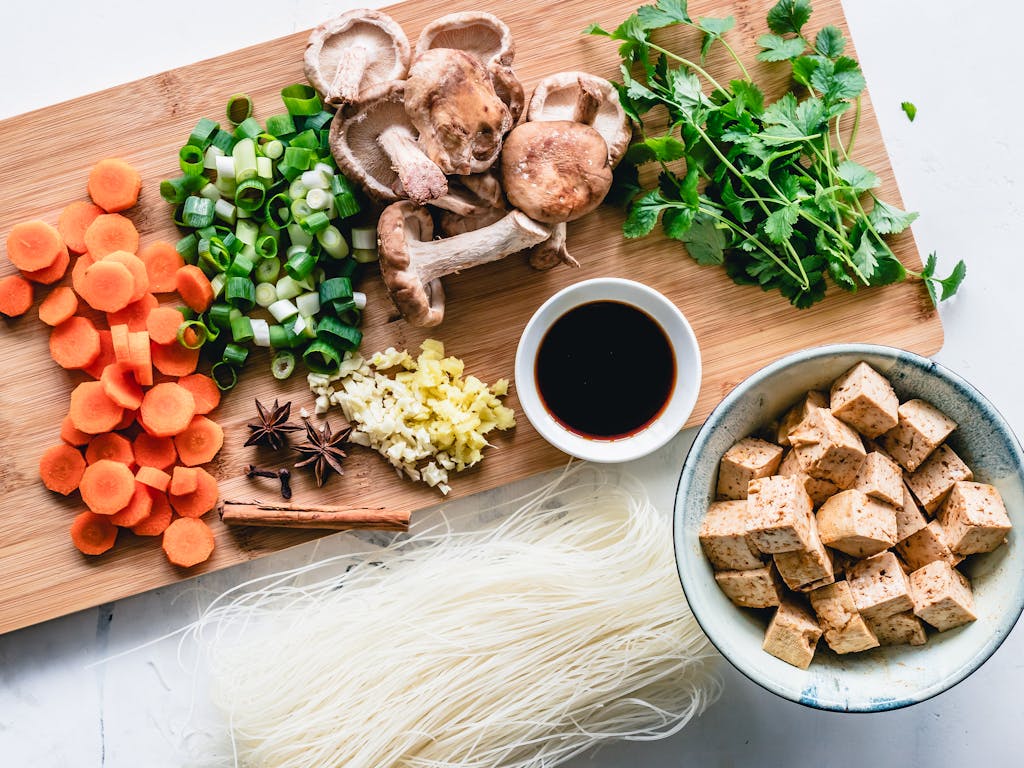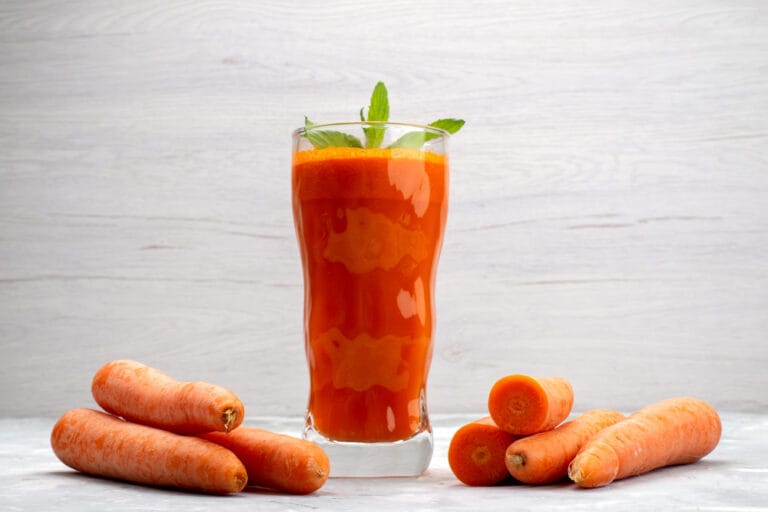FREE SHIPPING OVER $50
Vegetarian Muscle Secret: How to Hit 80g Protein Daily (No Powder, No Meat!)
Being a vegetarian comes with incredible health benefits, ethical considerations, and often, a delicious array of plant-based foods. But if you’ve ever ventured into the world of fitness or simply tried to prioritize your daily protein intake, you’ve likely faced the inevitable question (or silent doubt): “But where do you get your protein?” And if your goal is to hit a solid 80 grams of protein a day for muscle building, satiety, or just overall wellness, that question can feel even more daunting.
The common assumption is that you need meat, or at the very least, you’ll be chugging protein shakes all day long. But here’s the game-changing truth: that’s a myth! You absolutely can achieve a high protein intake as a vegetarian, building lean muscle and feeling incredibly strong and satisfied, without ever touching meat or relying on protein powders.
Why 80g of Protein? And Why It Matters for Vegetarians

For vegetarians, hitting higher protein targets is particularly important because:
- Satiety and Cravings: Protein is the most satiating macronutrient. A higher protein intake helps you feel fuller for longer, significantly reducing cravings and making weight management much easier.
- Muscle Maintenance and Growth: To build and maintain muscle mass, especially without meat, you need a consistent supply of amino acids. Adequate protein ensures your body has the building blocks it needs.
- Metabolism Support: Protein has a higher thermic effect of food (TEF) compared to carbs or fats, meaning your body burns more calories just digesting it. This can give a slight metabolic boost.
- “Complete” Proteins: While animal products are “complete” proteins (containing all 9 essential amino acids), vegetarians often need to be more mindful of combining complementary plant proteins throughout the day to ensure they get all essential amino acids. However, many plant-based foods are complete proteins on their own (like soy and quinoa), and combining foods like beans and rice within the same day provides all the necessary amino acids.
The Vegetarian Muscle Secret: Strategic Protein Stacking (No Powder, No Meat!)
The key to hitting 80g of protein daily as a vegetarian is strategic protein stacking across your meals and snacks. This means being mindful of including a protein-rich source (or two!) at every eating opportunity.
Breakfast: Kickstart Your Vegan Protein Intake
Start strong to make the rest of the day easier.
- Tofu (Firm or Silken): Tofu is a superstar of vegan protein.
- Protein Punch: 1/2 cup (125g) of firm tofu provides 10-12g of protein. Silken tofu is slightly less dense but still good.
- How to use it: Crumble firm tofu for a savory “scramble” with veggies and turmeric, blend silken tofu into creamy breakfast smoothies, or cube and pan-fry for adding to breakfast bowls.
- Tempeh: Another fermented soy product, even denser in protein and with a firmer texture.
- Protein Punch: A 4 oz (113g) serving of tempeh offers an impressive 18-20g of protein.
- How to use it: Slice and pan-fry for a breakfast “sausage” patty, crumble into a “bacon” bits substitute, or marinate and bake to add to breakfast burritos.
- Hemp Seeds (Hemp Hearts): These small seeds are packed with complete protein and healthy fats.
- Protein Punch: 3 tablespoons provide 10g of protein.
- How to use it: Sprinkle generously over oatmeal, vegan yogurt, or blend into smoothies.
- Oats: While primarily a carb source, oats contribute a surprising amount of protein.
- Protein Punch: 1/2 cup (dry) provides 5-6g of protein.
- How to use it: Make overnight oats with plant milk and load with seeds, or cook traditional oatmeal.
Breakfast Example (aiming for 25-30g):
- Tofu scramble (10-12g) with 1/2 cup black beans (7g) and spinach = ~17-19g protein
- 1/2 cup dry rolled oats (5-6g) cooked with 1 cup soy milk (8g) + 2 tbsp hemp seeds (7g) + 1 tbsp peanut butter (4g) = ~24-25g protein
Lunch: Layering Up Your Vegan Protein
Don’t let lunch be a carb-heavy slump. Focus on protein-rich vegan options.
- Lentils & Beans (Black, Kidney, Chickpeas, etc.): These legumes are absolute superstars for plant-based protein and fiber.
- Protein Punch: 1 cup of cooked lentils or black beans provides 15-18g of protein. Chickpeas are also excellent at around 15g per cup.
- How to use it: Build hearty salads, make lentil soup, create bean-based burgers, add to wraps, or toss into grain bowls.
- Edamame: A complete protein and great snack or addition to meals.
- Protein Punch: 1 cup of shelled edamame provides 18g of protein.
- How to use it: Steam and sprinkle with salt for a snack, add to salads, or toss into stir-fries.
- Nutritional Yeast: A savory, cheesy-flavored powerhouse often used in vegan cooking.
- Protein Punch: 2 tablespoons provides 4-5g of protein.
- How to use it: Sprinkle generously on roasted vegetables, popcorn, pasta, or use in sauces for a cheesy flavor boost.
Lunch Example (aiming for 25-30g):
- Large salad with 1 cup cooked chickpeas (15g) + 1/4 cup pumpkin seeds (6g) + 1/2 cup quinoa (4g) + mixed greens = ~25g protein
- Lentil soup (18g per cup) with a side of whole-grain bread (5g) and a sprinkle of nutritional yeast (4g) = ~27g protein
Dinner: The Main Vegan Protein Event
Make dinner your largest protein meal to ensure you hit your daily target.
- Seitan (Wheat Gluten): Made from vital wheat gluten, this is an incredibly high-protein vegan option.
- Protein Punch: 3 oz (85g) of seitan can pack an impressive 20-25g of protein.
- How to use it: Slice for stir-fries, grill like a steak, or simmer in stews. Its chewy texture makes it a great meat substitute. Note: Avoid if you have celiac disease or gluten sensitivity.
- Vegan Sausages & Burgers (Soy/Pea Protein-Based): Many commercially available vegan meats are excellent protein sources.
- Protein Punch: Varies, but many offer 15-25g of protein per serving.
- How to use it: Grill, pan-fry, or bake as a centerpiece for your meal, or crumble into pasta sauces. Read labels carefully for protein content.
- Nut Butters (Peanut, Almond, Cashew): Delicious, creamy, and packed with plant-based protein.
- Protein Punch: 2 tablespoons (32g) provides 7-8g of protein.
- How to use it: Add to curries, sauces, or use as a spread on whole-grain toast or in power bowls.
- Sprouted Grains (e.g., Ezekiel Bread): Sprouting increases the bioavailability of nutrients, including protein.
- Protein Punch: 2 slices of Ezekiel bread can provide 8-10g of protein.
- How to use it: Use for sandwiches, toast, or as a side with dinner.
Dinner Example (aiming for 30-35g):
- Seitan stir-fry (20-25g) with 1/2 cup brown rice (2g) + 1 cup edamame (18g) = ~40-45g protein
- Vegan lentil “meatloaf” (lentils 15g) with a side of steamed greens (3g) + 1/4 cup chopped walnuts (5g) = ~23g protein (add a side of high-protein plant milk for a boost)
- Large bowl of pasta with a rich tomato sauce fortified with 1/2 cup red lentils (9g) + 1/2 cup mushrooms (1g) + 2 tbsp nutritional yeast (4g) + 1/4 cup cashews (5g) = ~19g protein (add a protein-rich side)
Snacks: Vegan Protein Fillers
Strategic snacking is key to bridging the gap to 80g.
- Roasted chickpeas (7g per 1/2 cup)
- A handful of almonds or peanuts (6-8g per 1/4 cup)
- Vegan yogurt (e.g., soy or pea protein-based, often 10-15g per serving)
- Vegetable sticks with hummus (2g per 2 tbsp hummus)
- Soy milk (8g per cup) or other protein-fortified plant milks
- Vegan jerky (check labels, often 7-10g per serving)
- Chia seed pudding (5g per 2 tbsp chia seeds)
Sample Day: Hitting 80g Protein as a Vegan
Let’s put it all together to show you how achievable 80g+ truly is, without any animal products or powders:
- Breakfast: Tofu Scramble (12g) with 1/2 cup black beans (7g) and spinach.
- Protein: 19g
- Lunch: Large salad with 1 cup cooked chickpeas (15g), 1/2 cup cooked quinoa (4g), mixed greens, and 2 tablespoons hemp seeds (7g).
- Protein: 26g
- Snack: 1 cup shelled edamame (18g)
- Protein: 18g
- Dinner: Seitan stir-fry (20g) with 1/2 cup brown rice (2g) and 1 cup steamed broccoli (3g).
- Protein: 25g
Total Daily Protein: 88 grams!
The Vegan Muscle Secret Revealed: Smart Combinations & Consistency
The “secret” to hitting 80g of protein daily as a vegan, without resorting to powders or meat, truly boils down to two things:
- Smart Combinations: Mix and match different plant protein sources throughout the day (e.g., legumes + grains, nuts/seeds + soy products) to ensure you get a full spectrum of amino acids.
- Consistency: Make protein a non-negotiable component of every single meal and snack. Don’t leave it to chance.
You absolutely have the power to build a strong, muscular, and vibrant body on a vegan diet. It’s not about restriction or deprivation; it’s about smart choices, strategic planning, and harnessing the incredible power of plants.
Related Articles
- Hate Protein Powder? 10 Genius Ways to Make Your Smoothies a Protein Powerhouse (Naturally!)
- Boost Your Gym Workout: The 12 Pre-Workout Foods for Peak Performance (And 3 That Kill Your Gains!)
- Stop Buying the Wrong Milk: These 10 Options Are Healthiest and Highest in Protein
- Milk vs. Water for Protein Shakes: Which Helps Build More Muscle?
- We Tried 17 Protein Powders—These 7 Are Actually Worth Your Money







